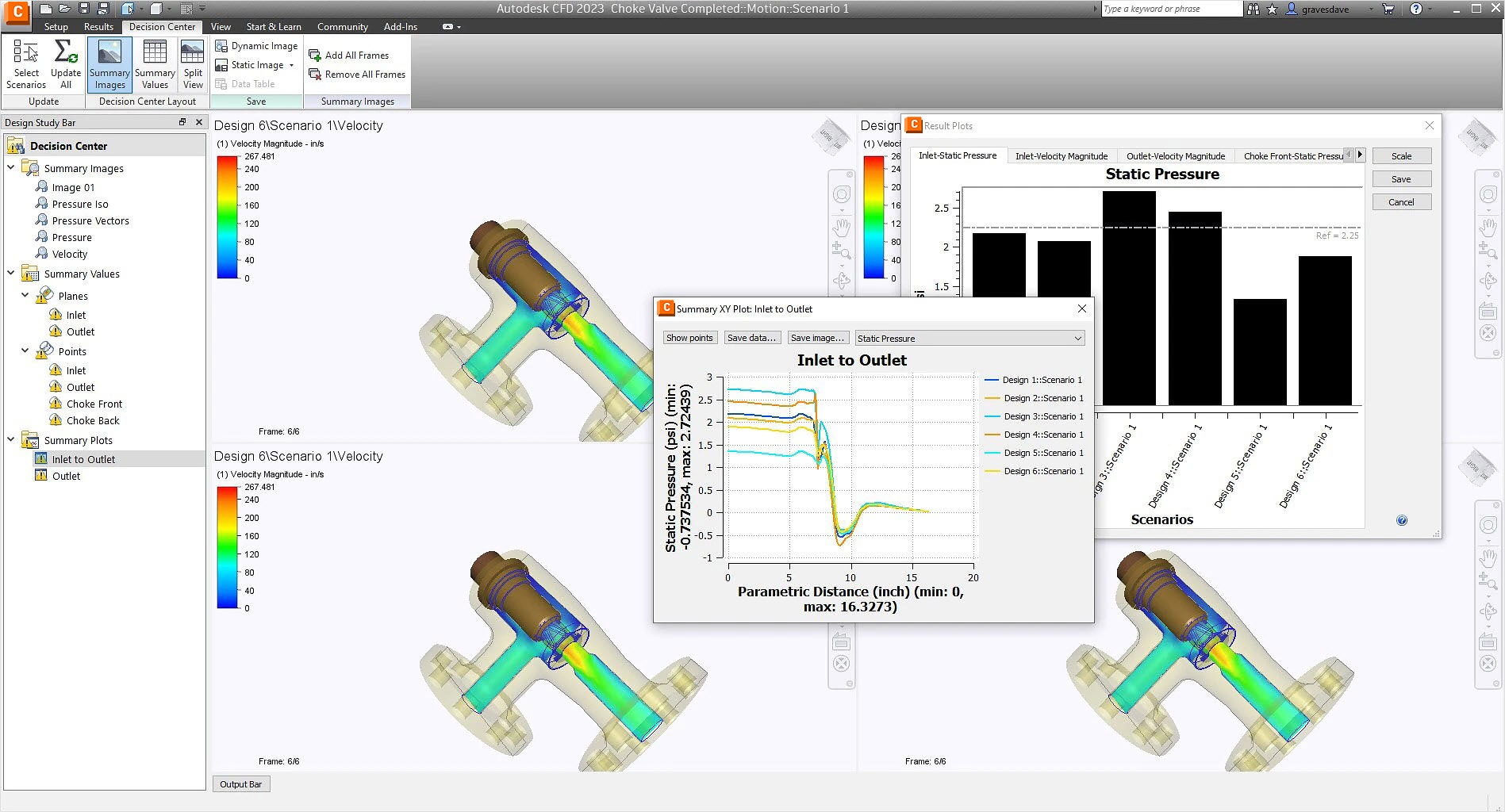& Construction

Integrated BIM tools, including Revit, AutoCAD, and Civil 3D
& Manufacturing

Professional CAD/CAM tools built on Inventor and AutoCAD
Optimise designs when you need to improve pressure drop or flow distribution
Solve for all modes of heat transfer, from solid to solid or solid to fluid
Improve building efficiency with optimised HVAC design
Simulate interfaces between liquids and gases. Model flow phenomena like waves, sloshing and spilling
Analyse the interaction between solid objects in motion and surrounding fluid
Model condensation of a liquid from a moist gas
Identify effects of solar heating on energy performance and efficiency of a structure and its spaces
Determine smoke patterns as they fill a room to help identify design changes and exit sign placement
Analyse rotating devices surrounded by a static (non-rotating) frame of reference
Launch from CAD
Send CAD models to Autodesk CFD from Autodesk Inventor, Autodesk Revit, AutoCAD Architecture and AutoCAD MEP. Enjoy a simplified import of other third-party native CAD models.
Surface Wrap
Consolidate multiple bodies of a model using surface wrap, add an external volume and generate a quality mesh for transfer into Autodesk CFD.
Mesh import and adaptive mesh
Import existing mesh such as I-deas (.unv) or Nastran (.nas or .dat). Apply adaptive mesh sizing, which utilises a comprehensive topological interrogation of the analysis geometry to apply appropriate sizes throughout the design.
Solver manager
Schedule, manage and simulate multiple scenarios from a single dialogue.
Custom result calculations
Set up custom result quantities to analyse and visualise quantities beyond the standard CFD results.
Remote solving
Run simulations on remote computers on your network and schedule multiple solves across different computers.
High-Performance Computing (HPC)
Autodesk CFD supports running simulations on multi-core computers, as well as with clusters of computers.
Cloud solving
Autodesk CFD 2024 offers an Autodesk token cloud solve option for completing simulations without tying up local resources.
Scalable solver
For simulations with over 10 million elements, the scalable solver enables each process to run on multiple threads as a process/thread hybrid. It is designed to optimise cache performance.
Cross-sectional planes
Visualise results through a 3D model on a cross-sectional colourized view.
Particle tracing
Virtually simulate injected dye streams to identify flow movement through particle tracing.
Iso surfaces
Review a constant value flow result with the predicted physical shape of the flow characteristics.
Iso volumes
Visualise the range of result values of a volume of a model.
Wall calculator
Calculate flow-induced forces on solid and wall surfaces, including heat flux and wall temperature.
Result parts
Result parts can be assessed and designated as summary parts and used in the Decision Centre to assess critical values.
Result points
Plot the time- or iteration-history at a specific location in the model. Designate summary points to assess critical values and compare results from multiple scenarios.
Export to FEA
Autodesk CFD results can be applied as boundary conditions for FEA analyses using popular FEA tools.
Autodesk CFD Viewer
Collaborate across multiple engineering workgroups by presenting and sharing Autodesk CFD graphical results.
Report generator
Customise and expedite the way you communicate results with reports.
